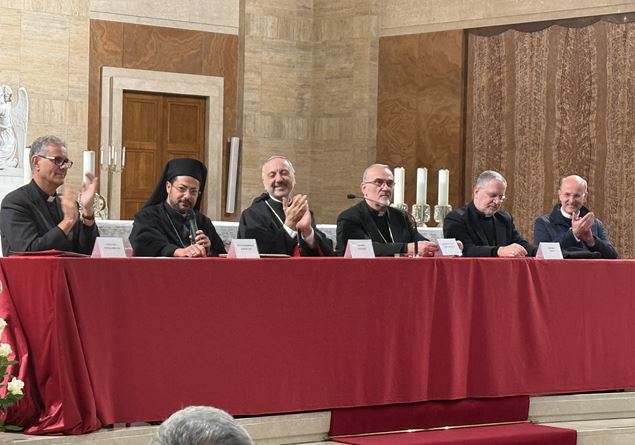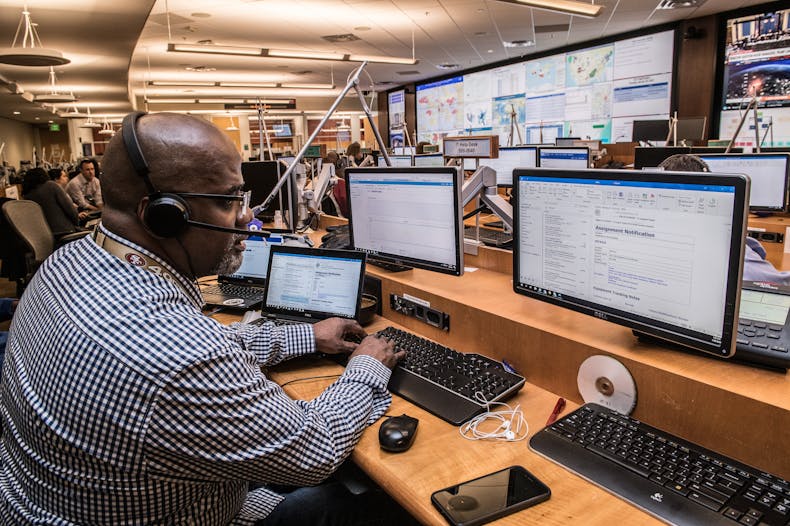
The Rise and Fall of CZ: Changpeng Zhao’s Journey from Crypto King to Inmate
Changpeng Zhao, better known as CZ, has been a driving force behind the world of cryptocurrency as the founder and former CEO of Binance, the globe’s largest crypto exchange. Originally a coder with a background in high-frequency trading on Wall Street, CZ took the leap into crypto in 2017 with a bold vision. He launched Binance after raising $15 million through an initial coin offering, and the exchange quickly rose to become the go-to platform for millions of crypto enthusiasts, processing nearly half of all global spot trades by 2023.
However, CZ’s journey hit a rough patch in 2023, when he faced US legal challenges, including fraud and money laundering charges. Stepping down as CEO, CZ still holds an impressive 90% stake in Binance, keeping him closely tied to the brand he built.
CEO Today magazine takes a closer look into the life of CZ, exploring his rise to prominence, the impact he has had on the cryptocurrency world, and the lessons his journey offers on navigating the peaks and pitfalls of innovation and ambition.
Changpeng Zhao (Chinese: 赵长鹏; pinyin: Zhào Chángpéng), commonly known as CZis a Canadian entrepreneur of Chinese origin. Zhao is widely recognized as the co-founder and former CEO of Binance, listed as the world’s largest cryptocurrency exchange by trading volume as of July 2024. He stepped down as CEO in November 2023 following a guilty plea to a money laundering charge in the United States. This legal issue culminated in a four-month prison sentence handed down in April 2024. As of August 22, 2024, the US Federal Bureau of Prisons lists Zhao as an inmate within the Residential Reentry Management Long Beach field office system.
Forbes ranks Zhao among the world’s wealthiest, positioning him as the 26th-richest individual globally and the wealthiest Canadian, with an impressive estimated net worth of $57.3 billion as of July 2024. This ranking highlights Zhao’s prominent financial standing, not only in Canada but also on the international stage.
Early Life and Education
Zhao was born in Lianyungang, a city located in Jiangsu province, China. In the late 1980s, when he was around 12 years old, he emigrated with his family to Canada, where they eventually settled in Vancouver, British Columbia. His parents were both dedicated educators, with his father having served as a university instructor in China. However, due to political circumstances, his father was labeled a “pro-bourgeois intellect” and was exiled to rural regions shortly after Zhao’s birth. These circumstances influenced the family’s decision to move to Canada in search of greater opportunities.
In his teenage years, Zhao took on various service jobs to help support his family financially, holding positions as a fast-food clerk at McDonald’s and working shifts at a local gas station. These experiences marked Zhao’s early immersion in the workforce, shaping his work ethic and determination.
Zhao later pursued higher education at McGill Universitya prestigious institution located in Montreal, Quebec. There, he majored in computer science, which laid the foundation for his future career in technology and finance.
Early career
Following his graduation from McGill University, Zhao began his career with an internship in Tokyo. He worked for a subcontractor of the Tokyo Stock Exchange, developing software systems for matching trade orders. This role provided Zhao with initial exposure to financial systems and trading platforms. He later joined Bloomberg Tradebookwhere he dedicated four years as a futures trading software developer. This position allowed him to build upon his technical expertise and develop a strong understanding of trading mechanisms, a skill set that would become invaluable in his later ventures.
Business Career and Entry into Cryptocurrency
In 2005, Zhao relocated to Shanghai to embark on a more entrepreneurial path. He founded Fusion Systems, his first technology startup, which gained a reputation for its high-frequency automated trading platforms designed specifically for stockbrokers. This venture showcased Zhao’s ability to innovate within the financial technology space.
In 2013, during a poker game with Bobby Lee (the brother of Charlie Leefounder of Litecoin), Zhao was introduced to Bitcoin. Lee encouraged Zhao to invest a modest 10% of his funds in Bitcoin; However, Zhao took a bolder approach by selling his apartment in Shanghai and investing all his savings into the cryptocurrency. His family was initially surprised and concerned by this high-stakes move, yet it marked Zhao’s first significant step into the world of digital assets.
In the same year, Zhao also joined the team responsible for developing Blockchain.info, a well-known blockchain wallet provider. He took on the role of Chief Technology Officer at OKCoin shortly after. In 2022, he made a notable investment of $500 million through Binance to support Elon Musk‘s acquisition of Twitter, reflecting his growing influence in both the tech and financial spheres.
Binance: Founding and Growth
The creation of Binance in July 2017 was a pivotal moment in Zhao’s career. Through an initial coin offering (ICO), Binance raised $15 millionwhich provided the company with the initial capital to launch its operations. Within just eight months, Binance ascended to become the largest cryptocurrency exchange globally in terms of trading volume, reaching this milestone by April 2018. This rapid growth underscored Zhao’s strategic vision and his ability to scale a business quickly in a highly competitive industry.
In the same year, Zhao launched Binance Coin (BNB), a utility token that offers various benefits to its holders, including discounts on trading fees. By April 2019, Binance had introduced Binance Smart Chain, a platform with smart contract capabilities aimed at competing with Ethereum.
In February 2018, Forbes acknowledged Zhao’s success by ranking him as the third-richest person in cryptocurrency, with an estimated net worth between $1.1 and $2 billion. In 2019, he expanded Binance’s reach by launching Binance.US, and in 2021, Binance chose to withdraw its application for a Singapore-based exchange.
Related: Ranking Canada’s Richest: The Ultimate Top 10 List
Legal Troubles
Civil Lawsuits and Regulatory Actions
On March 27, 2023, the Commodity Futures Trading Commission (CFTC) filed a lawsuit against Binance and Zhao in the US District Court for the Northern District of Illinois. The lawsuit alleged that Binance and Zhao had deliberately evaded US laws and breached regulations related to derivatives trading. The CFTC’s claims included accusations of inadequate anti-money laundering controls, citing internal communications that allegedly referenced transactions involving entities linked to Hamas and other suspected criminal organizations.
In June 2023, the US Securities and Exchange Commission (SEC) filed 13 charges against Zhao and Binance, asserting that they had violated US securities laws. This legal challenge marked a significant point of contention between Binance and US regulatory bodies.
Criminal Conviction and Consequences
In November 2023, Zhao agreed to resign from his role as CEO of Binance and pay a $50 million fine as part of a plea agreement with US federal authorities. In a parallel admission of guilt, Binance also pled guilty to similar charges and agreed to pay a substantial fine $4.3 billion. Following Zhao’s departure, Richard Teng assumed the position of CEO.
Zhao entered a guilty plea to violating the Bank Secrecy Act, acknowledging that he had prioritized Binance’s growth over compliance with anti-money laundering requirements set forth by the Financial Crimes Enforcement Network (FinCEN). As part of the plea deal, Binance admitted to operating as an unlicensed money-transmitting business and to violating the International Emergency Economic Powers Act.
In April 2024, Zhao was sentenced to a four-month prison term. Since Zhao is not a US citizen, he could not serve his sentence in a minimum-security facility, which raised concerns about his safety. Prosecutors had initially recommended a three-year sentence for Zhao.
The defense team for Zhao argued that Arthur Hayesfounder of BitMEX, received only probation for a similar offense, stressing that Zhao’s ineligibility for minimum-security facilities could put his safety at risk.
Views on Cryptocurrency
In an interview with The New York TimesZhao observed that people often enter the crypto market primarily to profit rather than to utilize cryptocurrencies as intended. Despite this, he expressed confidence that the market would eventually self-correct. On April 6, 2021, he revealed to Bloomberg Markets that nearly 100% of his liquid net worth was invested in cryptocurrency, demonstrating his deep commitment to the digital asset space.
Personal life
Zhao is a dual citizen of Canada and the UAE. Born in China in 1977, he left the country in 1989 following the Tiananmen Square incident. He later acquired Canadian citizenship around 1992. In 2005, he returned to China and bought an apartment in Shanghai; he sold this property in 2015 to reinvest the proceeds in Bitcoin. Zhao resided in China until 2017, when the Chinese government issued a ban on crypto exchanges. He currently resides in Dubai, UAE.
In 1999, Zhao met Yang Weiqingwhom he married in 2003. The couple has two children together. Though still married to Yang, Zhao has been in a “life partner” relationship with Hey Yihis co-founder at Binance, since 2014. Together, they have three children.
Zhao is known to be frugal: He doesn’t own cars, yachts, or luxury watches. Instead, he has digital watches like the Apple Watch, and he recently bought a Toyota Velfire van.
Political Views and Philanthropy
In 2021, Zhao articulated his political stance, clarifying that he is neither a full libertarian nor an anarchist, stating, “I don’t believe human civilization is advanced enough to live in a world with no rules.”
In terms of philanthropy, Zhao has expressed his intent to donate up to 99% of his wealth, aligning his approach with that of renowned philanthropists like Bill Gates and Warren Buffett. Zhao stated, “I intend to donate most of my wealth… 90%, 95%, or 99% of my wealth.”







